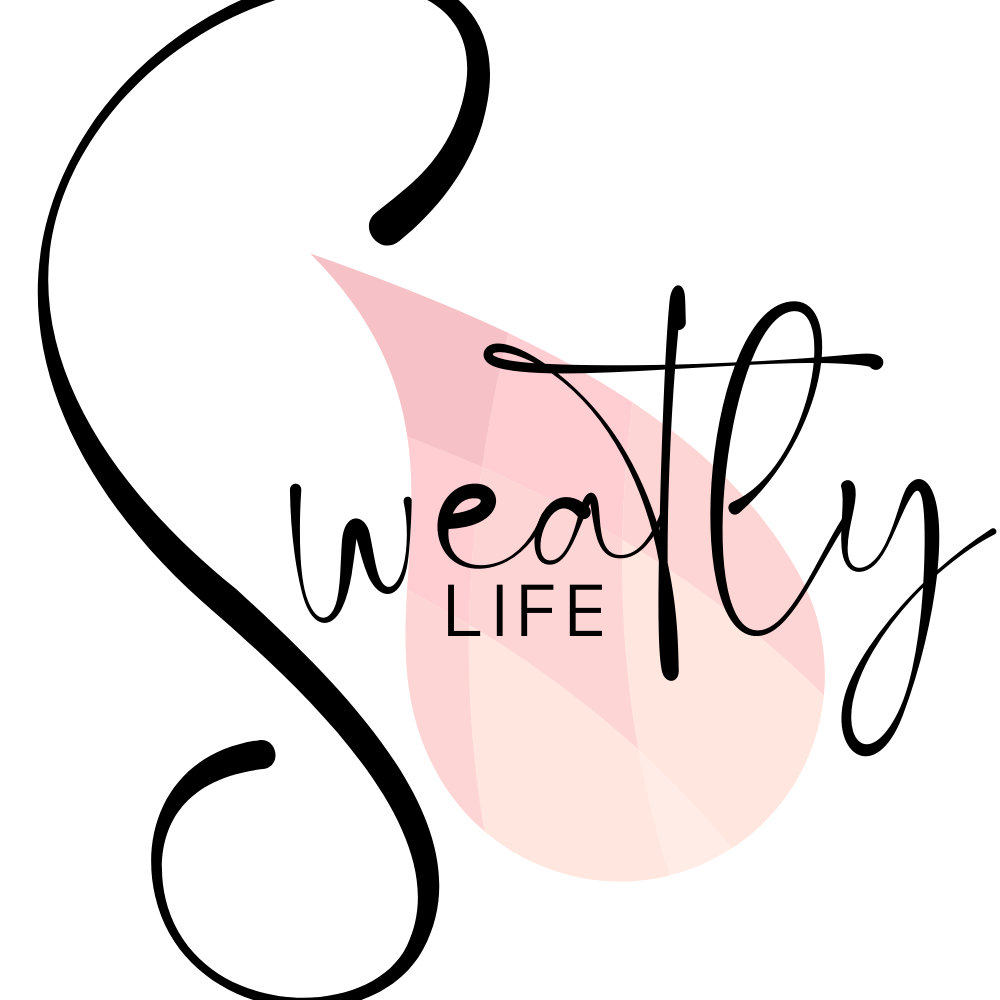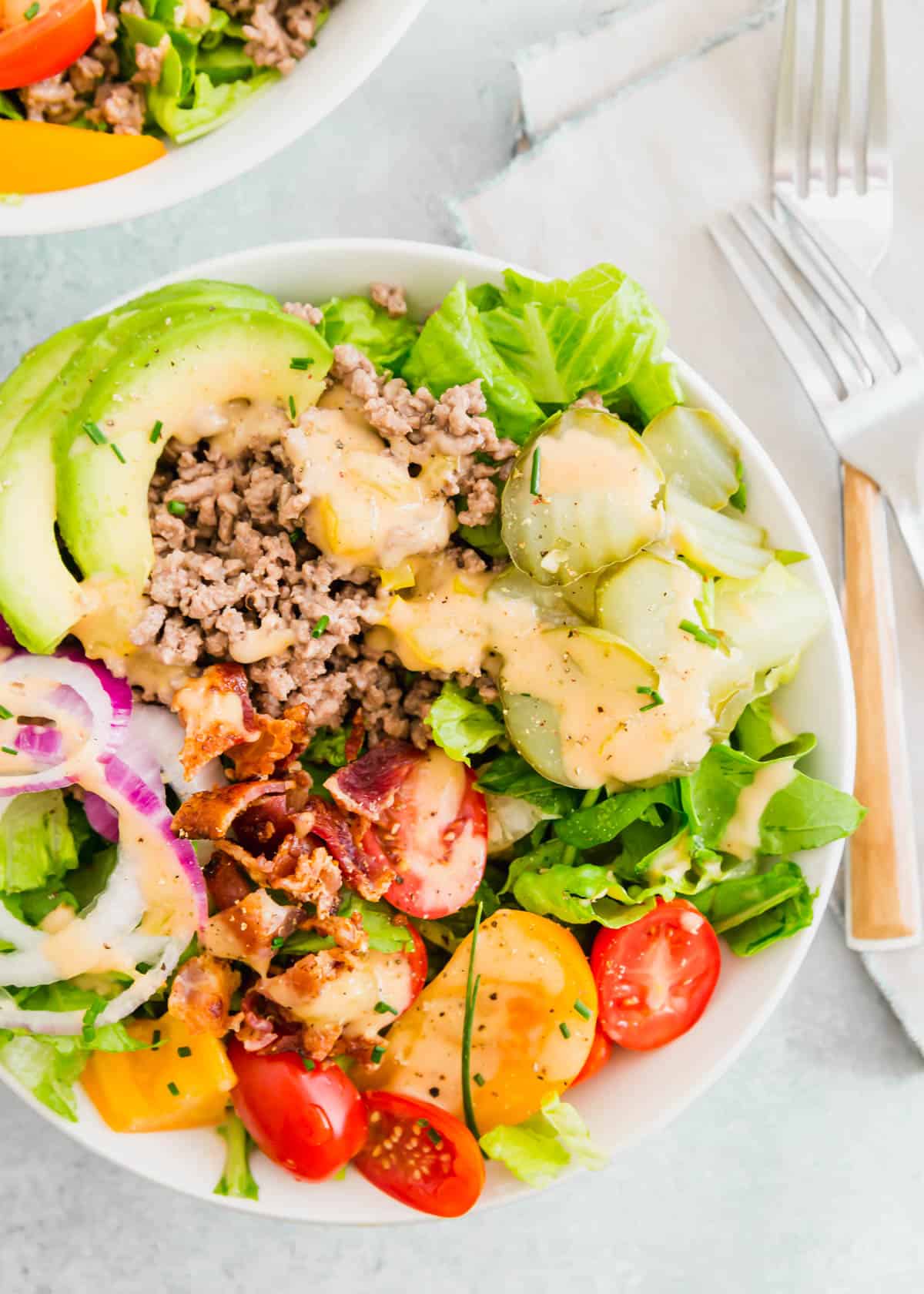
Introduction to Clean Eating
Clean eating has been essential to helping me lose weight after my pregnancies, and staying in shape in my late 30s. I believe that eating clean is so essential to balancing your hormones, bloos sugar levels and cravings. It’s been shown over and over in studies that ating processed foods makes us want to eat more and more! Whereas eating clean helps me feel more statisfied and full. Anytime I start eating more packaged foods, I find myself wanting to eat more throughout the whole day. I wanted to put together a great list of 30, clean eating recipes that taste amazing! These will help you eat clean and get on track, while feeling like you are eating the best meals!
The 30-day clean eating recipe round up is basically your free, 30-day clean eating plan! I put together 30 clean eating recipes for breakfast, lunch and dinner, so all your meals are ready to go! Just because I have 30 recipes, you don’t have to make them all. Hopefully you will have leftovers, so on days you don’t want to prep and cook, you will have plenty of clean-eating options in your fridge.
Get rid of your processed foods to help:
I HIGHLY recommend you do a quick pantry and fridge clean out. If you don’t have the food, you can’t eat it. You can hide or donate all the chips, crackers, breads, pasta and candy/sweets. These are high-calorie, low-nutrient foods that will not help you in your health goals. Fill your pantry with trail mix, quinoa, oatmeal and fruit for snacking.
What is Clean Eating?
Clean eating basically means eating real foods. Focus on lean proteins like chicken, turkey, eggs, beef and steak for protein sources, as well as fruits and vegetables. There is very little room for processed carbs, and instead focus on carbs like quinoa, sprouted grains, oatmeal, beans and nuts. The simplicity of eating clean actually makes the program really simple. You just have to ask yourself, is this a real food, or a processed food? If the label has multiple ingrediens, or if there is even a label at all, it most-likely is something you want to avoid all together.
There are so many benefits to eating clean, and it is more than just losing weight! Studies have found massive positive impacts on individuals who’ve changed their diets to more real food choices.
Benefits of Eating Clean (beyond just weight loss!):
- Nutrient Intake:
- A study published in the “Journal of the American College of Nutrition” found that individuals who followed a clean eating pattern had higher intakes of essential nutrients such as vitamins, minerals, and fiber compared to those with less healthy diets.
- Weight Management:
- Research in the “American Journal of Clinical Nutrition” suggests that clean eating is associated with lower calorie intake and a healthier body weight. Whole, unprocessed foods are often more filling, leading to better weight management.
- Heart Health:
- A study in the “Journal of Nutrition” reported that a clean eating pattern, characterized by a higher intake of fruits, vegetables, and whole grains, is linked to a lower risk of cardiovascular diseases.
- Blood Sugar Control:
- Clean eating, which emphasizes whole grains and minimizes refined sugars, may contribute to better blood sugar control. A study in the “American Journal of Clinical Nutrition” demonstrated improved insulin sensitivity with a clean eating approach.
- Inflammation Reduction:
- The anti-inflammatory properties of certain foods included in a clean diet may help reduce inflammation. Chronic inflammation is linked to various health conditions, including heart disease and arthritis.
- Cancer Prevention:
- Some studies suggest that a diet rich in fruits, vegetables, and whole grains may contribute to a reduced risk of certain cancers. Antioxidants found in these foods play a role in preventing cell damage.
- Gut Health:
- Research in the “European Journal of Nutrition” indicates that a clean eating pattern, with its emphasis on fiber-rich foods, may support a healthy gut microbiome, leading to better digestion and overall gut health.
- Mental Health:
- While more research is needed, there is emerging evidence that a diet rich in fruits, vegetables, and omega-3 fatty acids may have a positive impact on mental health and reduce the risk of depression.
Getting Started with Clean-Eating Grocery Shopping:
I wanted to offer a free, clean-eating grocery list, so you know what foods are good and what are not. Basically, this is everything you can eat for the next 30 days!
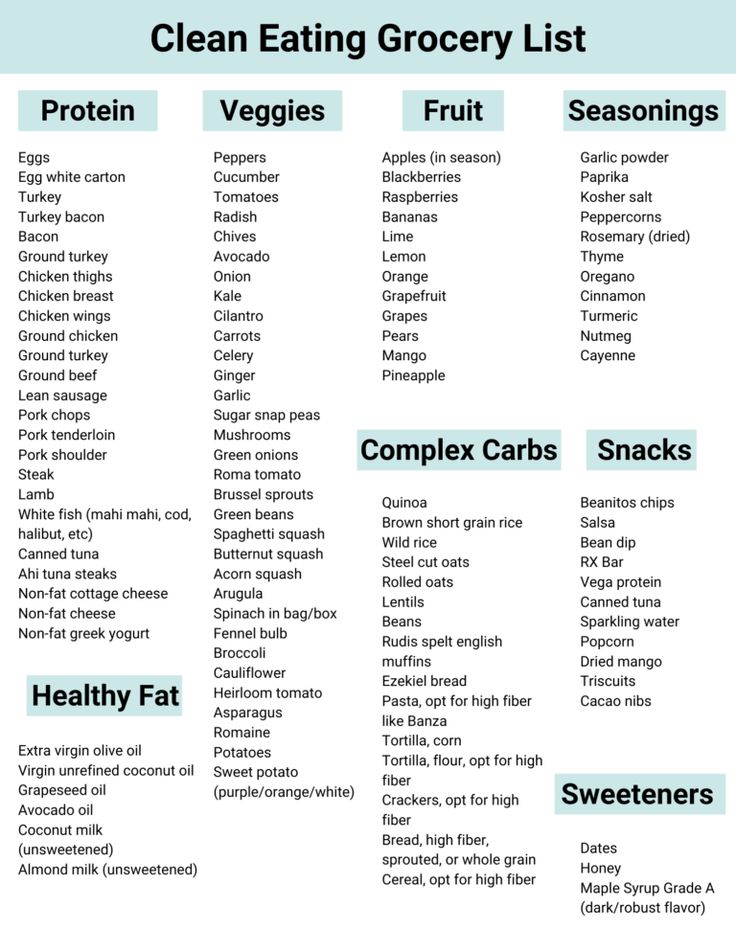
30 Clean-Eating Breakfast Recipes:
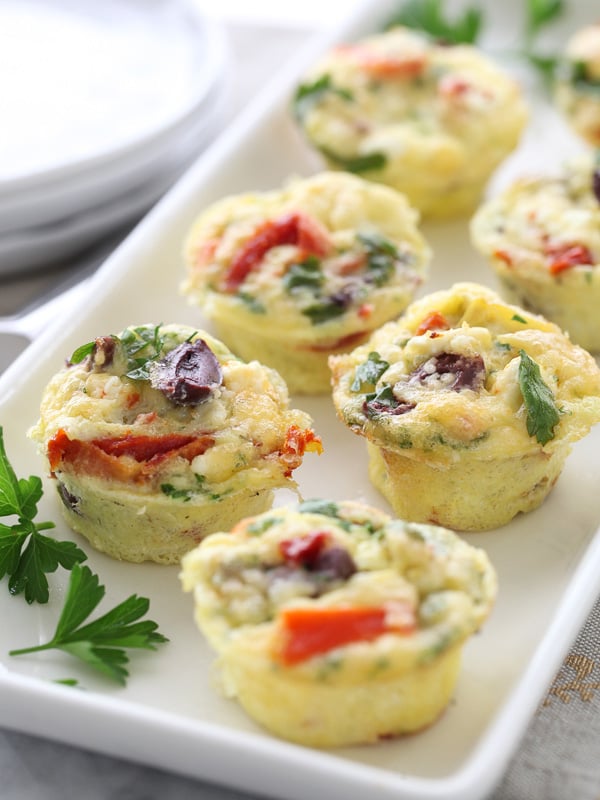
- Whole Wheat Applesauce Waffles
- Overnight Oats With Chocolate And Strawberries
- Superfood Mint Cacao Nib Smoothie
- Kale Quiche With A Cheddar-rice Crust
- Baked Eggs With Ricotta And Kale
- Blueberry Farro Yogurt Bowl
- Blueberry Oatmeal Waffles
- Chocolate Baked Oats
- Chocolate Banana Chia Smoothie
- Coconut Milk Chia Seed Pudding
- Sweet Dumpling Eggs in a Nest
- Spinach And Mushroom Egg White Frittata
- Mediterranean Mini Frittatas
- Triple Berry Oatmeal Smoothie Bowl
- Blueberry Lemon Yogurt Pancakes
- Strawberry & Cream Overnight Oats
- Sweet Potato Breakfast Bowl
- Mini Superfood Breakfast Pizzas
- Easy Meal Prep Baked Eggs
- Clean Eating Breakfast Scramble
- Blueberry Oatmeal Greek Yogurt Muffins
- Breakfast Toast That’s Not Boring
- Healthy Avocado Egg Salad
- Spinach Frittata
- Deep Dish Oven Omelet
- Dark Chocolate Protein Waffles
- Jalepeno Cilantro Hash Stuffed Portobellos
- Zuchini and Goat Cheese Frittata
- Healthy Zucchini Carrot Muffins
- Cinnamon Vanilla Protein Bites
30 Clean-Eating Lunch Recipes
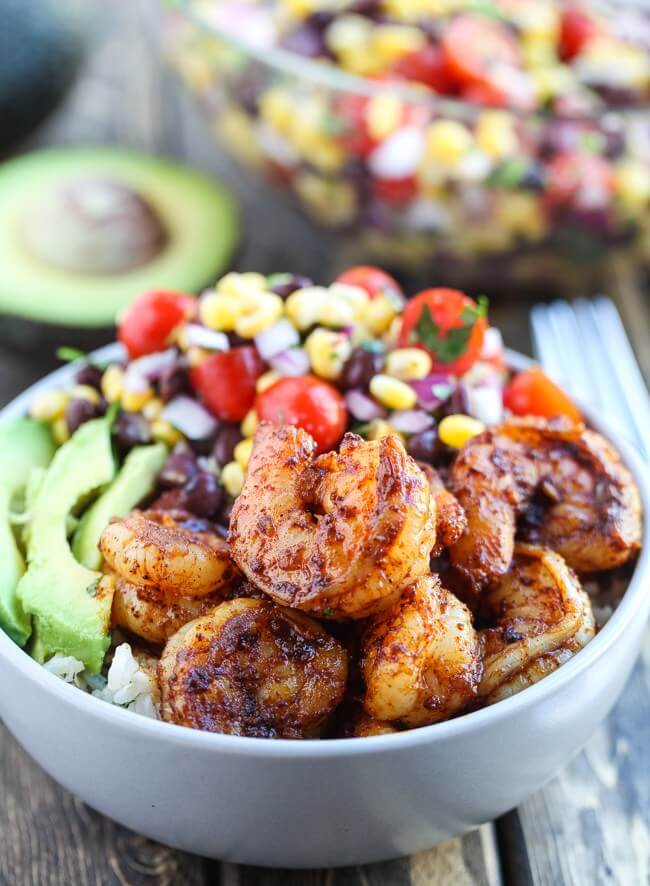
- Grilled Chicken Avocado Wrap
- Mexican Street Corn Chicken Salad
- Quinoa Mango Black Bean Salad with Spiced Pepitas & Chipotle Lime Dressing (Almond Flour Tortilla Recipe)
- Famous Crunchy Cashew Thai Quinoa Salad
- Spicy Chicken + Sweet Potato Bowl
- Chicken Rice & Black Bean Burritos
- Clean Eating Lettuce Wraps with Chicken & Avocado
- Sweet Potato Taco Bowl
- Healthy Potato Cobb Salad
- Smoke Salmon With Dilly Cucumber and Radish Salad
- Vegan Buddha Bowl
- Burger In A Bowl With Healthier Homemade Burger Sauce
- Chopped Crispy Citrus Chicken Salad
- Watermelon Feta Salad with Cornmeal Crusted Fried Scallops
- Blueberry White Bean Salad with Tahini Turmeric Dressing
- Lobster Mango Avocado Salad
- Honey Mustard Chicken and Brussels Sprouts Salad
- Greek Goddess Chicken Lettuce Wraps
- Avocado Chickpea Salad Sandwich
- Vegan Curry Chickpea Salad Collard Wraps
- Avocado Buffalo Chickpea Salad Wraps
- Pesto Chicken Bowls
- Spring Roll Bowls
- Egg And Veggie Bowl
- Grilled Lemon Herb Mediterranean Salad
- Buddha Bowl With Kale, Avocado Orange And Wild Rice
- Roasted Beet Salad With Chevre Green Goddess Dressing
- Broccoli Salad With Almond Dressing
- Detox Rainbow Roll-Ups with Peanut Sauce
- Summer Chipotle Chicken Cobb Salad with Cilantro Vinaigrette
30 Clean-Eating Dinner Recipes:
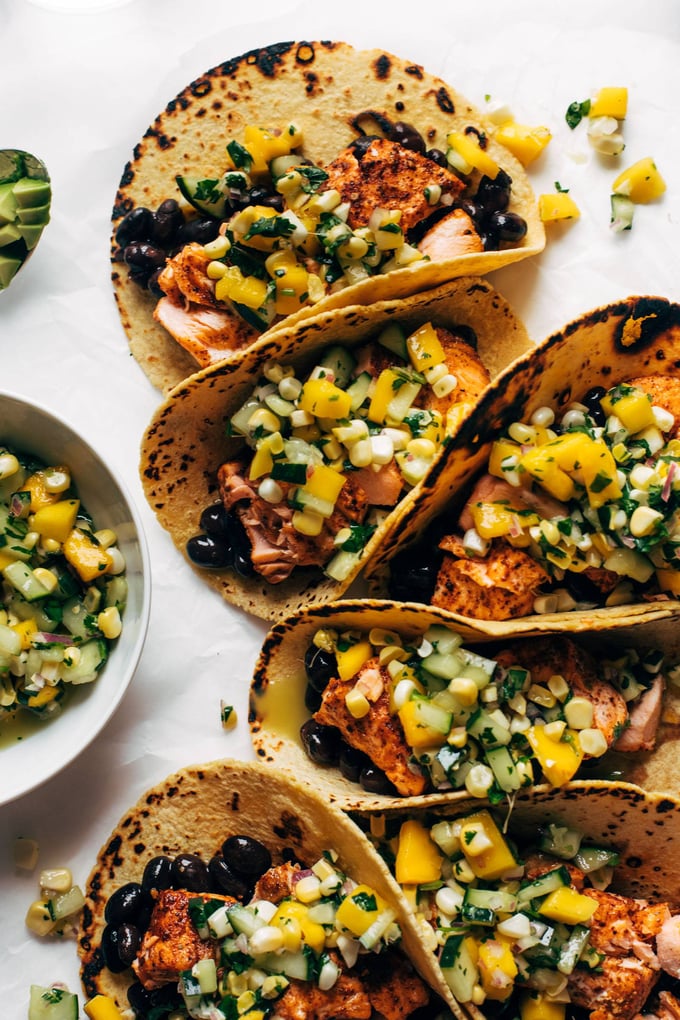
- Beef and Broccoli stir-fry dinner
- Balsamic Caprese Chicken
- Liz’s Roasted Broccoli Salad
- Grilled Chimichurri Portobellos with Goat Cheese Mashed Potatoes
- Salmon Tacos with Mango Corn Salsa
- Thai Chicken Zucchini Noodles with Spicy Peanut Sauce
- Pan Seared Chilean Sea Bass
- Shredded Chicken Tacos
- Garlic Parmesan Sheet Pan Shrimp with Zucchini
- Pork and Cabbage Stir Fry
- Ground Beef Stir Fry
- Sheet Pan Turmeric Salmon with Cherry Sauce
- Garlic Herb Roasted Shrimp
- Chicken Burrito Bowl
- Chicken Gyros With Tzatziki
- Glowing Citrus, Avocado, Quinoa And Blackened Salmon Salad
- Chicken Gyros with Tzatziki
- Loaded Sweet Potato With Chipotle Cashew Cream
- Chickpea Burgers
- Slow Cooker Crispy Carnitas
- Chicken with Tomatoes and Garlic
- Healthy Lemon Chicken
- Buffalo Chicken Tacos
- Squash Salad with Kale and Roasted Garlic Dressing
- Perfectly Roasted Chicken
- Juicy Air Fryer Burgers
- Baked Chicken Parmesan
- Salsa Verde Carne Asada
- Salmon Cakes with Lemon Dill Yogurt Sauce
- Super Tender Air Fryer Filet Mignon
The Importance of Protein While Eating Clean for Weight Loss
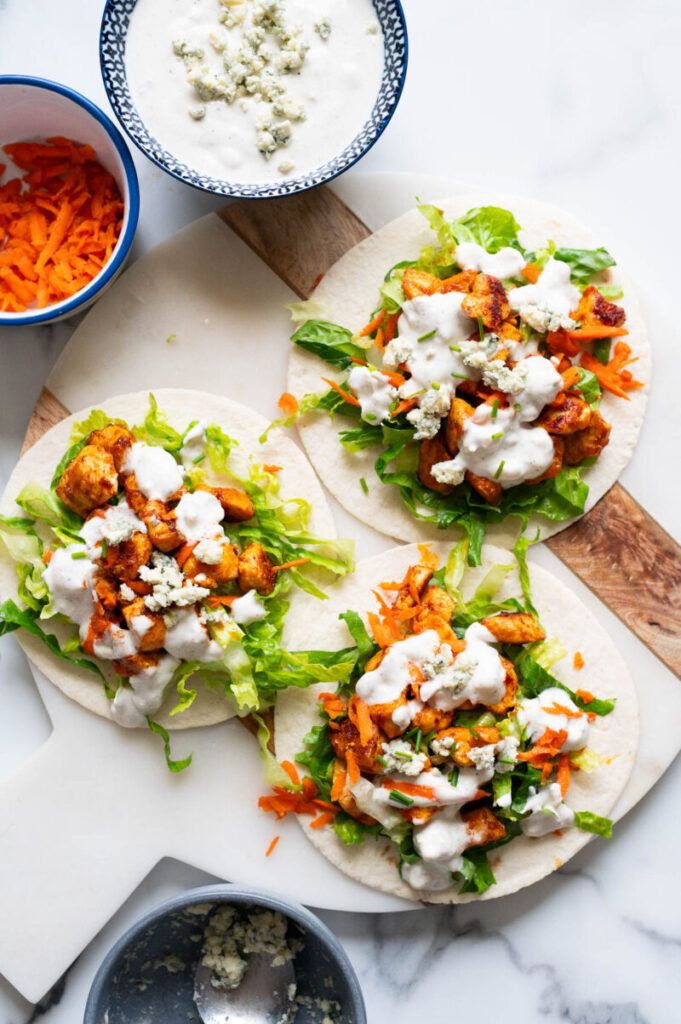
You’ll notice that a lot of these recipes are protein-centered. When you first start eating clean, you can find yourself feeling hungry and craving salty, sweet and processed foods. It will take your body a few days to adjust, and protein is really helpful in feeling full and satisfied. If you don’t eat enough protein while embarking on a clean-eating journey, you will find yourself struggling with a lot of cravings and hunger!
Protein is really helpful for maintaining lean muscle mass, as well as keeping your metabolism high.
- Satiety and Reduced Appetite:
- Protein is known for its ability to promote feelings of fullness and reduce overall appetite. Including lean protein in meals can help control hunger, preventing overeating and aiding in weight loss.
- Calorie Burn and Metabolism:
- The thermic effect of food (TEF) refers to the energy expended during digestion, absorption, and storage of nutrients. Protein has a higher TEF compared to fats and carbohydrates, meaning that the body burns more calories to process protein. This can contribute to increased calorie expenditure and weight loss.
- Preservation of Lean Muscle Mass:
- During weight loss, there is a risk of losing not just fat but also lean muscle mass. Adequate protein intake is essential for preserving muscle mass, which is important for overall metabolic health. Retaining muscle mass can help maintain a higher basal metabolic rate (BMR), supporting continued calorie burning.
- Blood Sugar Regulation:
- Protein-rich foods have a minimal impact on blood sugar levels compared to high-carbohydrate meals. This helps in stabilizing blood sugar levels, preventing sharp spikes and crashes that can lead to cravings and overeating.
- Increased Energy Expenditure During Exercise:
- Consuming protein before or after exercise can enhance the body’s ability to build and repair muscle tissue. This can contribute to increased energy expenditure during physical activity, supporting weight loss efforts.
- Fat Loss and Body Composition Improvement:
- Some studies suggest that a higher protein intake may enhance fat loss while preserving lean body mass. This is particularly important for achieving a favorable body composition during weight loss.
- Regulation of Appetite Hormones:
- Protein has been shown to influence the release of hormones that regulate appetite, such as ghrelin and peptide YY. These hormonal responses contribute to a sense of fullness and satisfaction after meals.
- Nutrient Density:
- Clean sources of protein, such as lean meats, fish, eggs, legumes, and plant-based options, often come with additional nutrients. This contributes to the overall nutrient density of meals, ensuring that the body receives essential vitamins and minerals during weight loss.
The Power of Vegetables for Weight Loss and Health:
Vegetables are so good for you! Almost all of these recipes offer vegetables or fruit. This is because the fiber, nutrients and antioxidants are so important for your body! Without the combination of fiber and protein, you will never feel completely full for very long. Most processed food has no protein or fiber, so you get used to wanting to eat a lot. Real foods offer protein, water, fiber and lots and lots of nutrients, especially vegetables.
Vegetables are a powerhouse of nutrients and offer numerous benefits for both weight loss and overall health. Here are some key reasons why vegetables are important:
- Low in Calories and High in Nutrients:
- Vegetables are generally low in calories but high in essential nutrients like vitamins, minerals, and antioxidants. This makes them a nutrient-dense choice that supports overall health without contributing significantly to calorie intake.
- High in Fiber:
- Fiber is crucial for weight loss and digestive health. Vegetables are an excellent source of dietary fiber, which promotes feelings of fullness, reduces appetite, and aids in weight management by preventing overeating.
- Water Content:
- Many vegetables have a high water content, which adds bulk to meals without adding extra calories. This helps in increasing satiety and hydration, contributing to weight loss.
- Nutrient Variety:
- Different vegetables provide a wide range of nutrients, including vitamins (such as vitamin A, vitamin C, and folate), minerals (such as potassium and magnesium), and phytonutrients. Consuming a variety of vegetables ensures a diverse nutrient intake that supports overall health.
- Anti-Inflammatory Properties:
- Vegetables, especially those with vibrant colors, are rich in antioxidants and anti-inflammatory compounds. Chronic inflammation is linked to various health issues, including obesity. Including a variety of vegetables in the diet may help reduce inflammation and promote overall well-being.
- Blood Sugar Control:
- Fiber-rich vegetables can slow down the absorption of sugars, leading to better blood sugar control. This is beneficial for weight loss and the prevention of insulin resistance.
- Support for Metabolism:
- Some vegetables, like leafy greens, contain compounds that may support metabolism. For example, chlorophyll in green vegetables has been studied for its potential metabolic benefits.
- Volume Eating:
- Vegetables have a low energy density, meaning they provide a large volume of food with fewer calories. This allows individuals to eat more while still managing their calorie intake, promoting a feeling of fullness.
- Gut Health:
- The fiber in vegetables acts as a prebiotic, supporting the growth of beneficial gut bacteria. A healthy gut microbiome is associated with various health benefits, including improved digestion and metabolism.
- Hydration and Detoxification:
- Many vegetables, such as cucumbers and celery, have a high water content, contributing to hydration. Additionally, certain vegetables support the body’s natural detoxification processes.
- Heart Health:
- Vegetables, particularly those rich in potassium and fiber, can contribute to lower blood pressure and improved cardiovascular health.
How to Workout While Eating Clean:
I highly recommend you start a workout routine with your clean-eating journey. You will help your body maintain and hold onto your muscle, and it will keep you feeling happy and positive. Exercise is so key to mental health, and it can be hard to change your eating style all together. You will also see results faster if you pick some sort of exercise routine to stick too!
I recommend checking these out:
5-Day Peloton Workout Plan To Grow Your Glutes in 2024
Free Peloton Workout Plan + Nutrition Guide For Weightloss in 2024
Also grab these meal plans to help you lose weight and get fit!
Sweatly High-Protein Post-Workout Recipe Pack | 15 High-Protein Post Workout Recipes
Sweatly New Year Detox Meal Plan – 4 Weeks | 1500 Calories
Sweatly Nutrition Plan For Over 30
-
Sale!
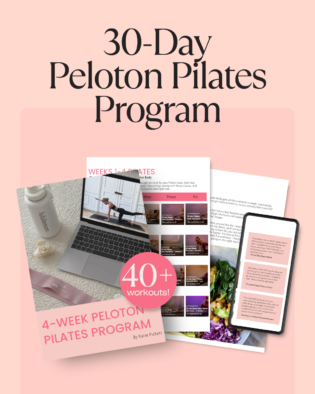
4-Week Peloton Pilates Workout Plan
$12.99Original price was: $12.99.$8.99Current price is: $8.99. -
Sale!
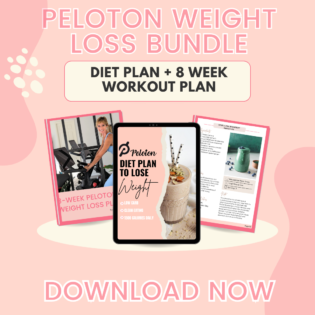
Peloton Diet Plan To Lose Weight + 8 Week Peloton Workout Plan Cardio + Strength
$27.99Original price was: $27.99.$22.99Current price is: $22.99. -
Sale!
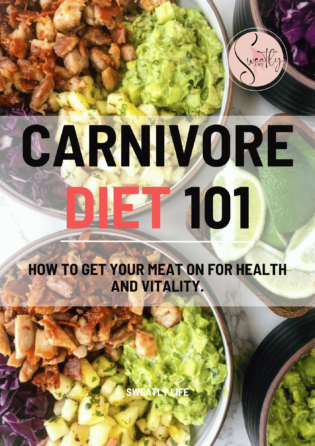
Canivore Diet Plan 101: Get Started
$7.99Original price was: $7.99.$4.99Current price is: $4.99. -

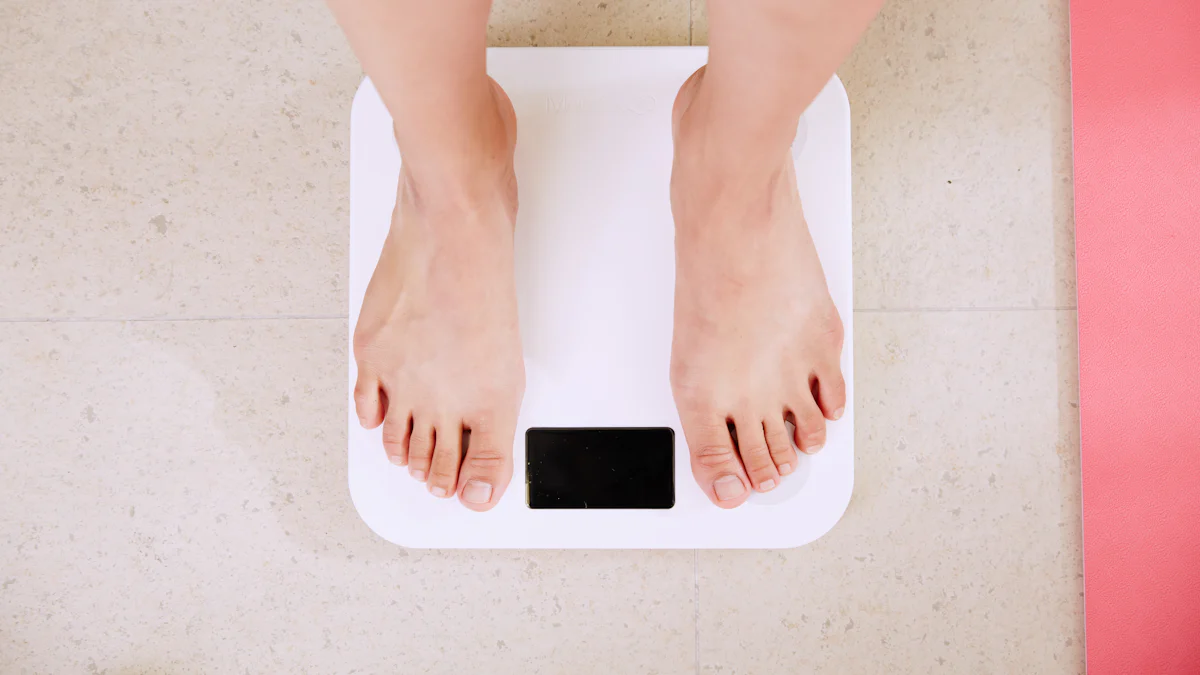
Boost Weight Loss Naturally with Top GLP-1 Supplements
Discover the best natural supplement options to boost GLP-1 levels, curb hunger, and support weight loss naturally with safe, plant-based ingredients.

